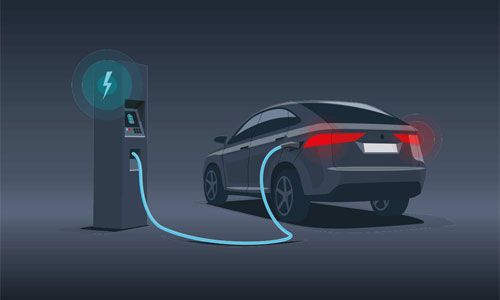Essential Considerations for Buying an Electric Vehicle
In a world striving for sustainability, the shift towards EVs is gaining momentum. With their promise of reduced emissions and lower operational costs, EVs have become an enticing option for environmentally conscious consumers. Dig into it for a deeper exploration of the subject matter.

Understanding Battery Range and Its Implications
One of the primary concerns for potential EV buyers is the vehicle’s range, or how far it can travel on a single charge. The range of an electric car is primarily determined by its battery capacity. Vehicles with larger battery capacities can generally drive further distances before needing a recharge. However, it’s important to note that the actual range can vary significantly based on several factors, including weather conditions, driving style, and the weight of passengers and cargo. For instance, cold temperatures can reduce battery efficiency, thereby decreasing the range, while a defensive driving style can help conserve energy and extend it.
Moreover, with the average range of electric cars increasing thanks to advancements in battery technology, concerns about running out of charge are becoming less prevalent. Nonetheless, understanding the factors that influence range and considering your typical driving patterns are crucial when selecting an EV.
Charging Infrastructure: Accessibility and Convenience
The availability and accessibility of charging stations are vital considerations for EV owners. Fortunately, the network of charging points is expanding, making it increasingly convenient to own and operate an electric vehicle. In countries like the Netherlands, an extensive network of charging stations ensures that drivers are rarely left stranded without a charging option. When evaluating an EV, it’s essential to consider your charging options, including the availability of public charging stations along your regular routes and the feasibility of installing a home charging station.
Price Considerations and Incentives
The initial purchase price of electric vehicles has historically been higher than that of their gasoline counterparts. However, this gap is narrowing due to technological advancements and increased production. Additionally, potential buyers should factor in available tax credits and incentives, which can significantly reduce the overall cost of an EV. It’s worth noting that not all electric vehicles qualify for the maximum federal tax credit, and eligibility can be affected by factors such as the vehicle’s battery origin.
Over the long term, EVs can be more economical to own due to lower operating costs. Electric vehicles typically have fewer moving parts than gasoline cars, resulting in lower maintenance costs. Furthermore, the cost of electricity to charge an EV is often less than the cost of gasoline, leading to savings on fuel.
Performance and Driving Experience
Electric vehicles offer a unique driving experience characterized by instant torque and smooth acceleration. This instant power delivery allows EVs to accelerate quickly, enhancing their performance and making them enjoyable to drive. Additionally, the lower center of gravity in electric vehicles, due to the placement of the battery pack, improves handling and stability.
Safety Features and Considerations
Electric vehicles are not only about efficiency and environmental benefits; they also offer several safety advantages over traditional cars. The lower center of gravity reduces the risk of rollovers, while the absence of a combustion engine in the front creates a larger crumple zone, potentially offering better protection in frontal collisions. Advanced safety features, such as regenerative braking, further enhance the safety of EVs. However, it’s important to be aware of concerns such as the quietness of electric vehicles, which can pose a risk to pedestrians. Measures are being taken to address this issue, including the implementation of noise-emitting devices to alert pedestrians of an approaching EV.
Conclusion
The decision to purchase an electric vehicle involves a multifaceted evaluation of factors including battery range, charging infrastructure, price, performance, and safety features. As the EV market continues to evolve, potential buyers are encouraged to conduct thorough research and consider their specific needs and driving habits. With the right information and preparation, transitioning to an electric vehicle can be a rewarding step towards a more sustainable and enjoyable driving experience.


















